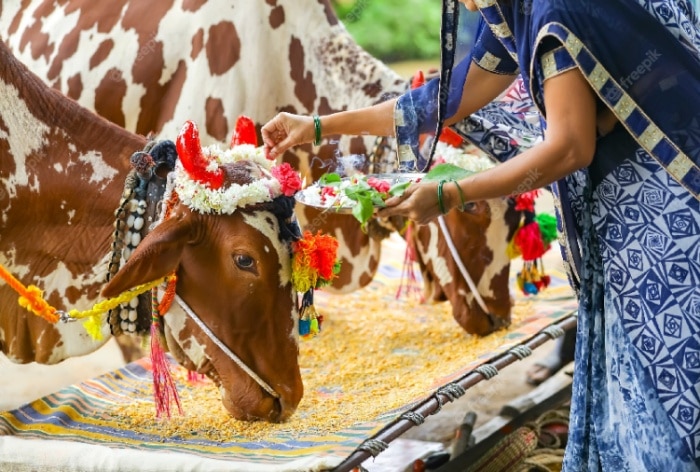Pola festival is like farmers’ thanksgiving festival for the cattle and flock. A grand festival of Maharashtra and Chhattisgarh, read on to know the story of this holy celebration.

Pola Festival 2023: India is a land of vibrant culture and traditions. Different Indian states have different traditions, festivals and rituals. Amongst the many festivals that are celebrated, one of the festivals that holds a lot of importance for farmers is Bail Pola. Every year it is celebrated on September 14 in the states of Maharashtra and Chattisgarh. It is much like a ‘Thanksgiving’ festival where farmers express their gratitude to the bulls and oxen for playing an important part in agriculture from ploughing seeds to mixing soil. It is believed that the Hindu God and Goddess were accompanied by animals like a bull named Nandi to Lord Shiva, and the Cow to Lord Krishna, Therefore, this festival is celebrated with full devotion and respect for castles.
POLA FESTIVAL 2023: HISTORY AND SIGNIFICANCE
The cattle-centric festival falls on the Kushopatini Amavasya, on the full moon day of the month of Shravana and this year it will be celebrated on September 14 across India.
In India, agriculture is one of the major sources of income. Cattle, bulls, are widely used for farming and hence the Pola Festival is celebrated in a bid to express gratitude to them. According to Hindu scriptures, It is also believed that on this day Lord Krishna killed the demon Polasur when he attacked Lord Krishna in his childhood and it is the reason why children are also given special treatment on this day.
POLA FESTIVAL CELEBRATION
The Pola festival is generally celebrated in Maharashtra and Chattisgarh where the villagers follow certain rituals and traditions. They begin by washing the bulls, then massage them with oil and later adorn it with shawls, flowers and bells. Often, their horns are also coloured. The farmers do not use bullocks for work during this festival. The bullocks are given new ropes and reins and are often paraded in the villages accompanied by villagers singing and dancing along.
This festival not only shows the relationship between farmers and cattles but also shows the amount of respect given to animals in our culture. On this day farmers also seek blessings for a good harvest and the well-being of their cattle.

